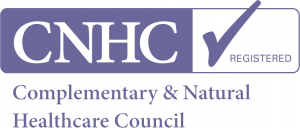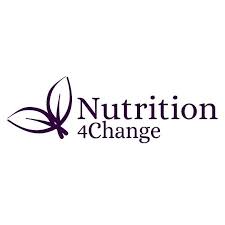Understanding the importance of Progesterone and how to support it
Are you perimenopausal and experiencing unpredictable cycles and heavy periods which are lasting 2 weeks or more? If so, then supporting Progesterone could help.
Progesterone and Oestrogen have a yin and yang relationship. You are probably already familiar with Oestrogen but here’s a few facts about progesterone…
What is Progesterone?
Progesterone is a steroid hormone made from cholesterol and plays a key role in our menstrual cycles and pregnancy.
The only way to make progesterone is with regular ovulatory cycles (the process in which an egg is released from an ovary). NO ovulation = NO progesterone.
The definition of ovulatory cycles is where your basal body temperature goes up at ovulation and stays up for at least 11 days. This happens during the second half of your cycle and can be tracked using a thermometer which can be helpful if you are trying to get pregnant.
Progesterone’s relationship with Oestrogen
Progesterone works together with Oestrogen as a team (they are like yin and yang).
The pre-ovulatory surge of Oestrogen (mid cycle) is necessary for ovulation, the manufacture of progesterone and up-regulation of Progesterone receptors whilst Progesterone counterbalances Oestrogen to help prevent unopposed Oestrogen and Oestrogen dominance.
Symptoms of too much Oestrogen
Too much Oestrogen (which is stimulatory) and we are at risk of oestrogen dominance symptoms which we may be more familiar with. These include:
- Breast pain
- Heavy, painful periods
- Mood swings
- PMS
Symptoms of too little Progesterone
Too little progesterone (which is calming) and we are likely to experience symptoms such as:
- Brain fog
- Anxiety
- Low mood
- Trouble sleeping
Progesterone at Perimenopause
At perimenopause when Progesterone lowers more quickly than Oestrogen this can lead to long , heavy and unpredictable cycles (progesterone is sometimes referred to as our period lightening hormone).
This can be difficult to navigate when you are at a busy life stage of possibly trying to juggle teenagers, ageing parents and a full / part time job!
In addition, Progesterone (together with Oestrogen – remember the yin yang) protects our long term health in terms of our bones, brains and heart health so it’s wise to understand more about how we can support ovulation and Progesterone production.
How to support Progesterone Production
To support progesterone focus on these lifestyle practises, nutritional strategies and supplements:
1. Restorative Practises
Build these into your weekly / daily schedule – such as walking in nature, deep breathing, yoga, meditation, Tai Chi, and Non sleep Deep Rest exercises such as this 10. Minute Non-Sleep Deep Rest.
Stress reducing exercises are important as stress can block ovulation by signalling to your ovaries not to ovulate and remember – no ovulation = no progesterone.
2. Eat a nourishing diet
Focusing on:
- Quality protein – meat, fish, eggs and plant proteins which includes all peas beans and legumes ( lentils, chickpeas, black beans, butter beans, sugar snap peas)
- Slow releasing complex carbohydrates (think brown rice, wholemeal sourdough)
- Healthy fats (extra virgin olive oil, avocados, oily fish, nuts and seeds)
- A rainbow of vegetables and fruits
Aim for at least 30g of protein at each meal but especially at breakfast (this is more easily achieved with a savoury breakfast) as a high protein breakfast will help calm your stress response.
Specific foods that support Progesterone include:
- Root vegetables – potatoes, squashes, turnip and beets
- Cruciferous vegetables – cauliflower, broccoli, Brussel sprouts
- Seeds – sunflower, flax, sesame
- Legumes – chickpeas, kidney beans, black beans
- Citrus Fruits – oranges, lemons limes
3. Identify and address inflammatory issues
This is important because they impact hormone levels including lower Progesterone production. These include
- A dairy (cow’s milk) or gluten sensitivity
- Insulin resistance which can block ovulation and worsen PMS symptoms
- Compromised gut health including intestinal permeability “leaky gut” and dysbiosis (imbalanced bacteria and / or pathogenic bacteria)
- Auto immunity including Rheumatoid Arthritis, Hashimoto’s (thyroid autoimmunity).
4. Thyroid health
Progesterone and thyroid hormones have a reciprocal relationship. You need adequate amounts of thyroid hormone for your ovaries to make Progesterone but Progesterone also helps the thyroid. For example, research shows that progesterone can increase thyroid hormone levels in the blood.
Progesterone also decreases the amount of protein that carries Thyroid in the blood so that more Thyroid hormone can be free and get into the cells.
5. Supplements
There are many supplements that can help with the ovulatory process, Progesterone production to regulate periods and to reduce the symptoms identified above associated with low progesterone and therefore unopposed Oestrogen (Oestrogen dominance).
Diet is always more important than any supplement and especially for hormone production, eating enough is key but the 2 supplements that I recommend the most for symptoms of low Progesterone are:
- Magnesium as it helps restore irregular periods, helps with sleep and PMS especially at perimenopause when all of these symptoms are challenging.
- Agnus Castus* as it promotes ovulation by calming your nervous system as well as improving PMS symptoms, breast pain and that unwanted “puffiness” that comes with water retention.
*Note: Agnus Castus is best taken under the advice of a practitioner and whilst you may need to take for between 3 – 6 months it should not be taken for more than 6 months continuously.
Summary
Maintaining the delicate balance between Oestrogen and Progesterone to support ovulation will help you reduce symptoms associated with your monthly cycle throughout your reproductive years.
Equally as important, it has numerous benefits during women’s ‘older years’…
“Ovulatory cycles across a woman’s long reproductive life span are needed to prevent osteoporosis and fracture, heart attacks and breast and endometrial cancers during women’s older years.”
Professor Jennifer Prior
“Every Ovulatory cycle is like a deposit into the bank account of long term health.”
Dr Lara Briden
Consultations either Face to Face in Chorleywood, Hertfordshire, England or online via Zoom covering the UK
Social



Nutrition 4 change is based in Chorleywood, Hertfordshire, England
Website built and hosted by Able Web Design
